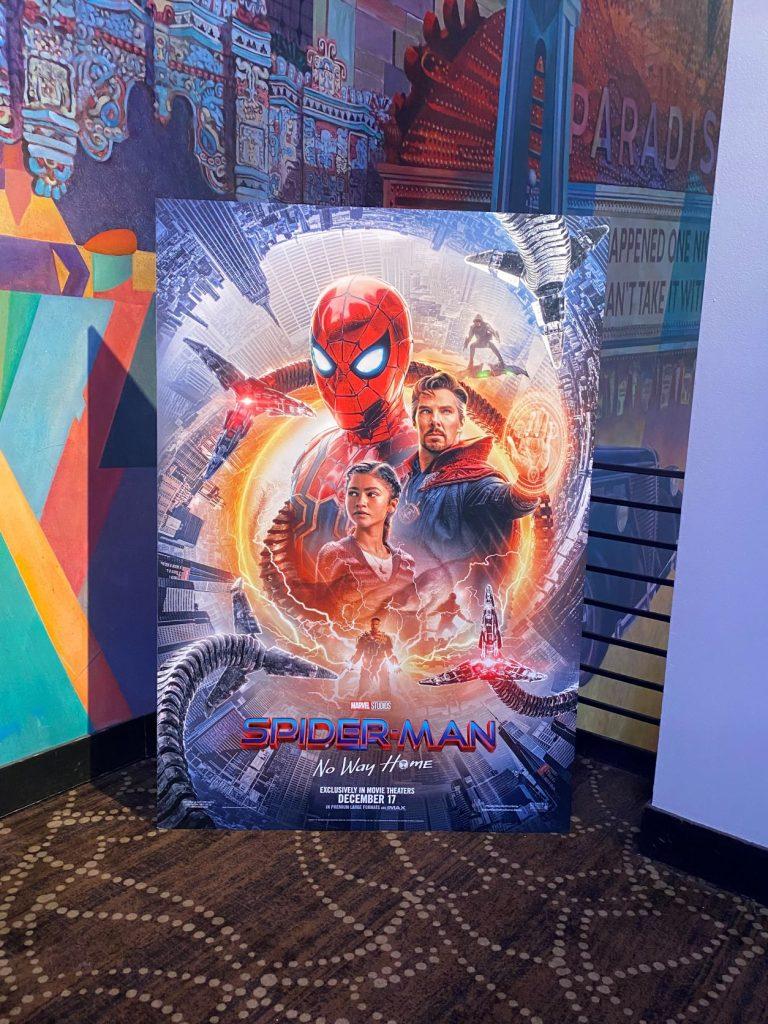
Disclaimer: This review contains spoilers. Reader discretion is advised.
On December 17, the newest installment of the hit Marvel Cinematic Universe (MCU) franchise, Spider-Man: No Way Home, was released and quickly became one of the greatest box office successes of all time, having already grossed over a billion dollars within two weeks of its release. The film also opened to wide public acclaim, even being hailed by some as the MCU’s greatest film yet.
The film follows the previous movie Spider-Man: Far From Home, where Spider-Man (Tom Holland) has his identity revealed to the world as Peter Parker. In an attempt to bring things back to normal, particularly between his friends and family, he seeks out sorcerer Dr. Strange, asking if the wizard can erase the public’s memory. But the plan goes awry as the spell instead brings in villainous characters from past Spider-Man franchises who begin to wreak havoc.
Part of what made the film such a rewarding payoff for many was the enormous hype surrounding it; the film managed to exceed expectations with humor, heart, and nostalgia. Even with all the rumors that were floated, audiences were both astonished and moved throughout the movie, especially when both past Spider-Men from different series (played by Tobey Maguire and Andrew Garfield) made a much-desired return.
The film managed to allot ample time for each character, whether part of Holland’s universe or outside of it, to be spotlighted. Characters were not rushed or crammed in just for “fan service,” a prime example being the Green Goblin (Willem Dafoe), whose menace and power as one of Spider-Man’s greatest villains was well-exemplified in the film. Another impressive feat was the way in which the film provided an epilogue for the former Spider-Men, building upon their experiences after their respective franchises ended and even giving them moments of redemption. In addition, Zendaya’s MJ and Jacob Batalon’s Ned were illuminated more in this film than ever before, having much more solidified character arcs and complexities compared to Holland’s previous Spider-Man films.
One of the main issues with the past Tom Holland movies that fans often bring up is his character’s lack of development in comparison to the past Spider-Men. In the Spider-Man movies starring Andrew Garfield and Tobey Maguire, Peter Parker’s constant internal struggle with balancing his personal life and responsibilities as the web-slinging superhero is clearly evident. His inner turmoil permeated his everyday life, the consequences of which highlighted the weight of his responsibility as Spider-Man and grounded his character to the overarching message Uncle Ben’s character taught Peter in the original Spider-Man film: “With great power comes great responsibility.”
Tom Holland’s first two Spider-Man films fail to fully embody this core aspect of the character. In Homecoming and Far from Home we see Peter constantly make mistakes and learn from them, but there are no tangible consequences that force his character to grow and realize the true weight of his responsibilities as Spider-Man. In No Way Home, however, we finally see Tom Holland’s Peter Parker face the consequences of struggling to juggle the identities of Spider-Man and Peter Parker as he undergoes moments of grief and pain that ground his character to the core of what makes Spider-Man, Spider-Man.
Overall, No Way Home is a fantastic cinematic creation that balances humor and feel-good moments with pure drama, surprise, and suspense. It has already cemented itself in box-office history and will soon become an iconic staple of Spider-Man lore.
Photo by Jessica Sandoval




























